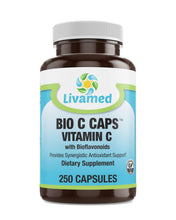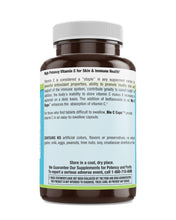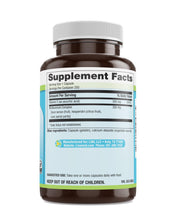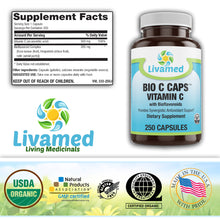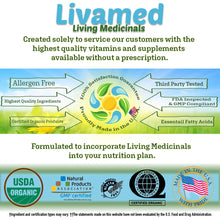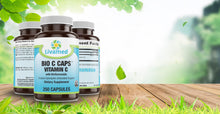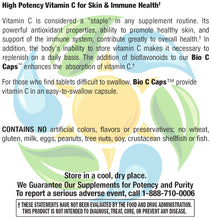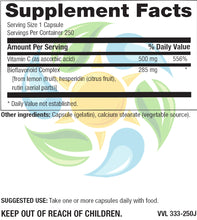
Bio C Caps™ Vitamin C with Bioflavonoids 250 Count
Buffered Vitamin C with Bioflavonoids
- 1000 mg buffered vitamin C with 700 mg bioflavonoids, as well as Rose Hips and Acerola
- Contains calcium carbonate and magnesium oxide to buffer the natural acidity of vitamin C
What Our Experts Say
- Our Vitamin C product for people looking for ascorbic acid with real bioflavonoids
- Contains our unique 100% true whole food bioflavonoid that is made from whole lemons, hesperidin fruit, and rutin buds
- Available in 250 count
- Vegetarian Capsules
The Problem:
- Most Vitamin C products are synthetic and are derived predominantly from corn syrup and acetone
- Synthetic Vitamin C is misrepresented as natural by many manufacturers. Almost all isolated Vitamin C in supplements is synthetic
- Many Vitamin C products are labeled to contain rose hips or bioflavonoids to give the appearance of being "whole food" or more natural, but the quality and amounts of these added ingredients are so poor that they are hardly beneficial.
- Most bioflavonoid supplements are bi-products of juice manufacturing and are therefore heavily processed and lack the original, natural, nutritious compounds
- Bioflavonoid labeling is misleading. It may say "from lemons" as the source of bioflavonoids, but that does not divulge if it is from a lemon pulp waste product.
Our Solution:
- We are transparent about our isolated Vitamin C and it will never be mis-labelled as "natural."
- Our bioflavonoids are not a byproduct of juice manufacturing. Instead, real fruits and herbs are concentrated and gently processed into tablets.
- The difference between our product and competitors is in the price; a well made bioflavonoids supplement cannot be as cheap as most brands charge.
- All our products meet our Vitality Approved quality standards, ensuring potent and pure products on a consistent basis.
About Vitamin C & Bioflavonoids
Vitamin C, also known as ascorbic acid, is a vitamin crucial in many body systems. We are advocates for eating foods rich in Vitamin C, such as oranges, acerola cherries, or camu-camu berries on a regular basis.
Vitamin C isolates should be reserved for those who are looking to prevent true Vitamin C deficiency. Those looking for the health benefits of Vitamin C rich foods should improve dietary intake or look to true whole food products.
There are many related Vitamin C products that include esterified or buffered Vitamin C, bioflavonoids (including quercetin and rutin), and rose hips.
There are about 4000 different flavonoids, which is a subtype of a larger chemical family called polyphenols. Bioflavonoids give flowers, fruits, and leaves their attractive colors.
Polyphenols and bioflavonoids, when found in foods, have many different actions Not all are beneficial or safe in humans, but many have anti-inflammatory and anti-oxidant effects.
Bioflavonoids from citrus plants are just a single group of bioflavonoids. Berries, wine, herbs, onions, tomato, tea, and cocoa all have different types of bioflavonoids, in varying amounts.
*These statements have not been evaluated by the Food and Drug Administration. This product is not intended to diagnose, treat, cure or prevent any disease.
The information provided is for educational purposes only and does not constitute medical advice. Always seek the advice of your physician or qualified healthcare provider with any questions or concerns about your health. Check with your doctor before beginning any exercise program. Never disregard or delay seeking medical advice because of something you have heard or read in this article or the internet.
Warnings:
- Keep out of reach of children.
Suggested Use:
Take two capsules daily with a meal or a glass of water.
5793428570278 Inventory Last Updated: Dec 24, 2025








